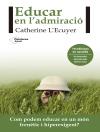If you are considering placing a child with special needs at a new school, it can be difficult to know where to begin. Should you choose a special school, or a special unit within a mainstream school? What will be the involvement of therapists? Maybe home schooling would be best? Whether the child has autism, dyslexia or any other special educational, emotional or behavioural difficulty, this book will help you find the school that suits the child best.
From drawing up a list of possibilities and setting up a school visit, to asking the right questions and recording your opinions in order to make an informed decision, Choosing a School for a Child with Special Needs will guide you through this complex and stressful process with confidence and ease.
Whether you are a parent seeking a special school, a professional researching a school, or a teacher recommending what to look for in a school, this book is a must-have reference for anyone taking school placement seriously.
Содержание
Acknowledgements. Explanatory Terms. Introduction. Part 1 — Looking at Specific Definitions of Special Educational Needs. 1. The Definition of Special Educational Needs. 2. Communication and Interaction. 3. Cognition and Learning. 4. Behaviour, Emotional and Social Development. 5. Sensory and Physical Needs. 6. Complex Needs. 7. Medical Needs and School Trips. 8. The Current Law on Special Educational Needs. Part 2 — Understanding the Background. 9. Understanding the Child’s Needs and the Role of Assessment by a Psychologist. 10. How to Draw Up a List of Schools. 11. Getting the Right Documents. Part 3 — Setting Up a Visit. 12. How to Set Up a Visit. 13. Looking at the Physical School Environment in General. 14. Looking at the Classroom Environment. 15. Making a Record of the School Visit. Part 4 — Looking at Specific Provision/Intervention. 16. Teaching for Specific Learning Difficulties. 17. Intervention for Sensory Needs. 18. Autistic Provision. 19. Music Therapy, Drama Therapy, Play Therapy and Psychotherapy. 20. Counselling and Mentoring. 21. Speech and Language Therapy. 22. Occupational Therapy. 23. Physiotherapy. Part 5 — Other Important Issues to Consider. 24. Integration and Inclusion. 25. Religious Beliefs, Co-Education, Small Classes, School Size and Transition. 26. Equality and Discrimination. Part 6 — Different School Models. 27. Mainstream Schools. 28. Special Units in Mainstream Schools. 29. Special Schools. 30. Dual Placements. 31. Pupil Referral Units. 32. Residential Schools. 33. Home Education. 34. Hospital Schools. 35. Studio Schools and Virtual Schools. Part 7 — Summary. 36. Evaluating the Findings. Bibliography. Resources and Useful Organisations. Websites. Index
Об авторе
Ruth Birnbaum is a Chartered Educational Psychologist in independent practice, with 27 years’ experience in the field of education. A trained teacher with a Masters degree in Educational Psychology, she now visits schools across the UK to consider provision and advise parents and legal consultants on which schools are most appropriate for which children.












